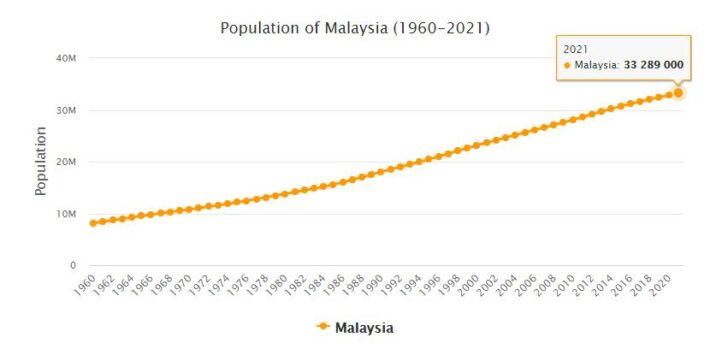Yearbook 2012
Malaysia. Malaysia’s most prominent opposition politician, Anwar Ibrahim, leader of the People’s Justice Party (PKR), was acquitted in January by a court in the capital Kuala Lumpur in a well-publicized, two-year trial in which Anwar was charged with committing homosexual acts, which is prohibited in Malaysia according to an old law from the colonial era. Anwar, who was accused of a so-called sodomy violation by a former employee, was released after the evidence (including DNA samples) against him was deemed to be unreliable. The prosecutor’s side appealed the verdict. Anwar was for some years in the 1990s one of Mahathir bin Mohamad’s (mighty prime minister 1981-2003) closest men, but since the two became osams and arch enemies, Anwar was deposed as vice prime minister in 1998 and charged with corruption and sodomy. He was convicted of both offenses in 1999. The sodomy was canceled in 2004.
At the end of April, tens of thousands of Malaysians walked the streets of Kuala Lumpur in protest of the country’s electoral laws, which they felt favored the ruling National Front with the party UMNO at the forefront. The coalition has ruled in Malaysia since the country’s independence in 1957. Demonstrations were the largest in a decade and riot police were called out to quell the riots with tear gas and water cannons. At least 20 people were arrested. The demonstrations were organized by opposition movements and Anwar Ibrahim participated. He was later indicted for violating the demonstration laws. Governors in Malaysia have been extremely sensitive to strikes and demonstrations since 1969, when hundreds of people were killed in ethnically related riots.
- AbbreviationFinder.org: Provides most commonly used acronyms and abbreviations for Malaysia. Also includes location map, major cities, and country overview.
In May, for the first time, minimum wages were introduced in an effort to strengthen poor families. In the western Malacca peninsula, the minimum wage was set at about SEK 2,000 a month, while in eastern Malaysia (Sabah and Sarawak on Borneo) it was set at about SEK 1,800. The decision on the minimum wage applied to private employees, and employers were given a year to implement the decision, which, however, received criticism for pressing the country’s private small businesses hard.
In September, the Malaysian Atomic Energy Agency authorized the Australian company Lynas to extract so-called earth metals in the state of Pahang in Malaysia for two years. The production produces a radioactive waste that environmental activists protested against, but which Lynas stated that it would handle responsibly.
The contemporary history of Malaysia
In this article, Malaysia’s contemporary history includes the time after 2003, when the country’s prime minister for 22 years, Mahathir Mohamad resigned. Mahathir won reputation as an authoritarian and controversial leadership figure, receiving much of the credit for Malaysia’s economic and social progress.
New leadership
A milestone in Malaysia’s recent history was passed in 2003: After 22 years as the country’s dominant leader, Mahathir Mohamad left the prime minister’s post to Abdullah Ahmad Badawi. Badawi secured a popular mandate in the March 2004 parliamentary elections as he led the National Front to the largest electoral victory in the country’s 46-year history. In relation to the 1999 election, the party increased the number of votes from 57 to 64 percent and the share of seats from 77 to 90 percent. The major loser of the election became the country’s largest opposition party, the fundamentalist Pan-Malaysian Islamic Party (PAS), which managed to stick to just seven of its 27 seats. After the election, Badawi was regarded as the undisputed leader of the ethnic-Malay majority.
In 2009, Najib Razak was elected the country’s 6th prime minister; his time as prime minister was characterized by economic liberalization measures and measures to reduce business privileges in ethnic Malays.
Opposition leader’s troubles
Former Deputy Prime Minister Anwar Ibrahim was released in 2004 after six years in prison. Anwar was one of Malaysia’s most respected leaders in the 1990s, and designated Mahathir’s political “crown prince”. However, the two smoked unclear about the way out of the financial Asia crisis (see Economy and Business in Asia) in 1997–1998. Anwar was arrested in 1998, and sentenced to two 15 years in prison, two separate lawsuits, six years for corruption and nine for homicide. He denied all charges, and the verdicts triggered vigorous protests. The release occurred after the Supreme Court overturned the verdict for sodomy.
In November 2007, Malaysia experienced the largest anti-government demonstrations in eight years. Led by opposition leader Anwar Ibrahim, tens of thousands gathered to demand changes to the electoral law. The current law favors too much the dominant ruling party UMNO, the opposition believes.
Anwar Ibrahim was arrested again in July 2008, suspected of having a gay relationship with a former employee. He was released on bail without being formally charged. Anwar stated that the case was a political lie, like the one that led him to be convicted of sodomy and imprisoned in 2000 – a verdict that was then reversed in 2004.
Population 2012
According to countryaah, the population of Malaysia in 2012 was 30,270,851, ranking number 44 in the world. The population growth rate was 1.420% yearly, and the population density was 92.1350 people per km2.
